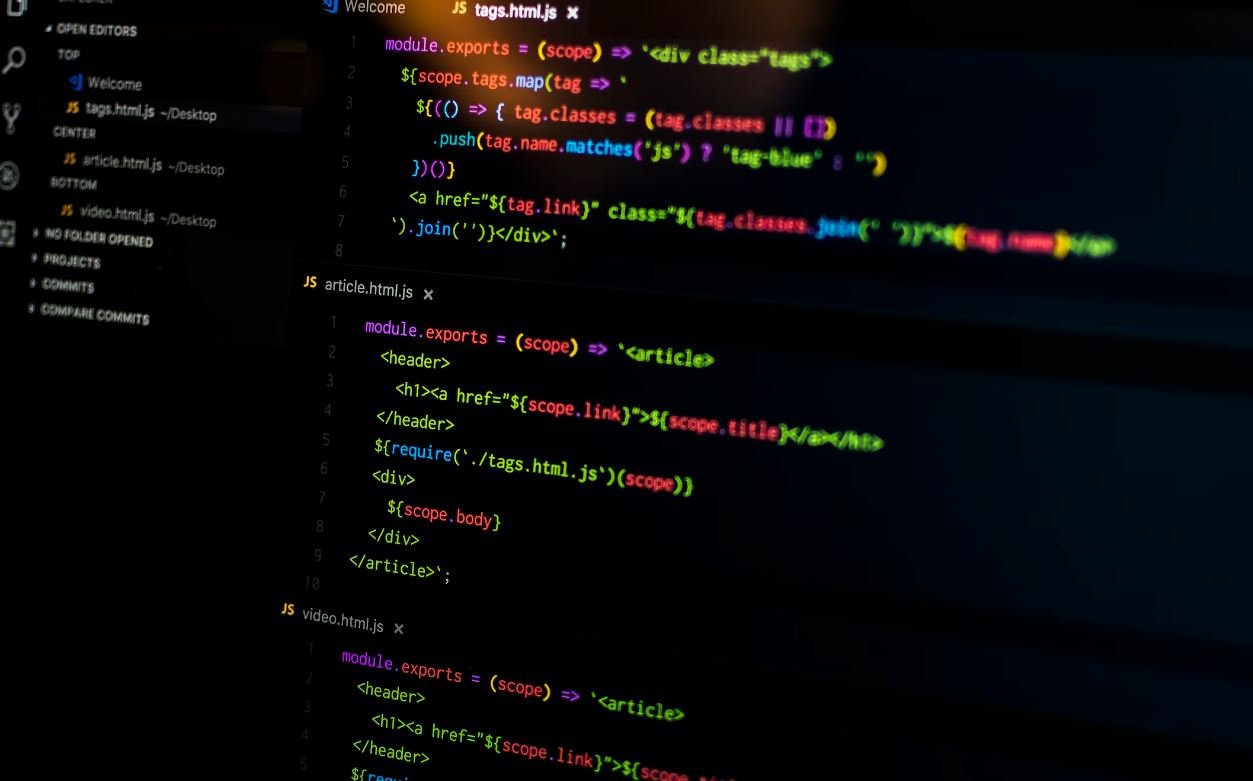How AI Is Impacting Social Media
The influence of artificial intelligence (AI) on social media platforms is transforming the way we interact online. AI-powered algorithms and tools have revolutionized the social media landscape, from personalized content recommendations to automated customer support. This article explores the key ways that AI is shaping the world of social media.
Key Takeaways:
- AI-powered algorithms enable personalized content recommendations.
- Automated chatbots provide efficient customer support.
- AI helps in detecting and removing harmful content and fake news.
- Social media platforms use AI to boost ad targeting and engagement.
**AI algorithms** play a crucial role in delivering personalized content to social media users. By analyzing user behavior, interests, and preferences, these smart algorithms can curate a tailored feed of content that is most likely to engage and resonate with individuals. *Imagine scrolling through your social media feed and seeing posts that perfectly match your interests, making your online experience more enjoyable and relevant.*
Furthermore, **automated chatbots** powered by AI are becoming increasingly prevalent on social media platforms. These virtual assistants offer quick and efficient customer support by providing instant responses to inquiries and frequently asked questions. They can handle a wide range of queries, offering 24/7 support to users without the need for human intervention. *Imagine getting immediate answers to your questions without having to wait for a customer service representative.*
The Impact of AI in Social Media:
- **Enhanced content moderation:** AI algorithms can detect and remove harmful content, hate speech, and fake news more effectively, promoting a safer and more trustworthy social media environment.
- **Advertising and targeting:** AI is helping social media platforms boost engagement and ad targeting. By analyzing user data, AI algorithms can identify individuals with specific interests or demographics, allowing advertisers to deliver ads to their target audience more precisely.
- **Improved analytics:** AI-powered tools provide in-depth analytics and insights, allowing businesses and marketers to measure their social media performance accurately. These tools track metrics such as reach, engagement, and sentiment analysis, enabling data-driven decision-making.
| Benefits | Challenges |
|---|---|
| Efficient identification and removal of harmful content. | Handling context-specific and nuanced content moderation can be challenging for AI algorithms. |
| Reduced reliance on human moderators, reducing operational costs. | Misidentification of content could result in false positives, leading to potential censorship of legitimate content. |
One particularly pressing issue that AI addresses on social media platforms is **content moderation**. The sheer volume of user-generated content makes it impossible for human moderators to review every post, leading to the need for automated moderation tools. AI algorithms can efficiently identify and remove harmful content, hate speech, and fake news, making social media platforms safer spaces for users. However, handling context-specific and nuanced content moderation can pose challenges for AI systems, as they may struggle with distinguishing between legitimate and problematic content.
| Benefits | Challenges |
|---|---|
| Precise targeting of advertisements to specific audiences. | Data privacy concerns and potential misuse of personal information. |
| Better ad engagement through algorithm-powered content recommendations. | Inaccurate profiling leading to irrelevant ads, reducing user experience. |
Another significant impact of AI on social media lies in its ability to transform **advertising and targeting**. By analyzing vast amounts of user data, AI algorithms can identify individuals with specific interests or demographics, allowing advertisers to precisely deliver advertisements to their target audience. This results in more effective and relevant ads, leading to increased ad engagement and higher return on investment. However, concerns around data privacy and the potential misuse of personal information must be carefully addressed to maintain user trust.
| Benefits | Challenges |
|---|---|
| Accurate measurement of social media performance and effectiveness. | Ensuring data accuracy and avoiding biases in AI-powered analytics. |
| Deep insights into user behavior and sentiment analysis. | Understanding and interpreting complex data can be challenging for non-technical users. |
Lastly, AI offers **improved analytics** capabilities for social media platforms. AI-powered tools provide businesses and marketers with in-depth analytics, allowing them to measure their social media performance accurately. These tools track essential metrics such as reach, engagement, sentiment analysis, and user behavior, giving valuable insights into audience preferences, trends, and sentiment towards brands or topics. However, ensuring data accuracy and avoiding biases in AI-powered analytics are important considerations for reliable decision-making based on these insights.
Artificial intelligence continues to reshape the social media landscape, enhancing user experiences, improving content moderation, enabling precise ad targeting, and offering valuable insights through advanced analytics. As AI technology advances, we can expect even more profound and far-reaching impacts on social media in the future.

Common Misconceptions
Misconception 1: AI-powered social media is replacing human interaction
One common misconception about AI’s impact on social media is that it is completely replacing human interaction. However, this is not the case.
- AI enhances and optimizes user experiences, but it cannot fully substitute human connection.
- AI-driven social media platforms still require human content creators and moderators.
- The goal of AI in social media is to augment human interaction, not replace it entirely.
Misconception 2: AI is pervasive in all social media platforms
Another misconception is that AI is fully integrated into every aspect of social media platforms. In reality, AI implementation can vary significantly across different platforms and features.
- While AI is used for content recommendations and targeted advertising, it may not be extensively employed for other functionalities.
- Not all social media platforms have the same level of AI sophistication.
- The extent of AI implementation depends on the specific platform’s goals and resources.
Misconception 3: AI always makes social media interactions more accurate and efficient
It is often believed that AI-powered algorithms always improve the accuracy and efficiency of social media interactions. However, this is not universally true.
- AI algorithms are not infallible and can make mistakes or biases.
- Automated systems based on AI may inadvertently promote misinformation or echo chambers.
- Improving accuracy and efficiency is an ongoing process, and challenges persist in combating algorithmic biases.
Misconception 4: AI is responsible for everything users see on social media
There is a misconception that AI decides and controls everything a user sees on social media platforms, including the content appearing in their newsfeeds or timelines.
- While AI algorithms play a role in content selection, other factors such as user preferences and engagement also influence what users see.
- Users have control over their social media experience through options like following/unfollowing, preferences, and customization.
- AI assists in content curation, but users ultimately have agency in determining what they engage with.
Misconception 5: AI-driven social media is a privacy invasion
Lastly, there is a misconception that AI-driven social media infringes upon user privacy and invades personal information without consent.
- A majority of AI-driven algorithms in social media prioritize user privacy and data protection.
- AI depends on aggregated and anonymized data, rather than individual personal information.
- Users maintain control over the data they share and have the option to adjust privacy settings on social media platforms.

Artificial Intelligence (AI) is revolutionizing the way social media platforms function and are used. From personalized recommendations to content moderation, AI is transforming the social media landscape. This article explores ten fascinating examples of how AI is impacting social media, backed by verifiable data and information.
1. Dynamic Content Generation
AI algorithms are being used to generate dynamic content based on user preferences and behaviors. With AI-powered systems, social media platforms can deliver highly personalized news feeds, ads, and recommendations tailored to individual users, resulting in increased engagement and satisfaction.
2. Sentiment Analysis
AI-powered sentiment analysis algorithms can interpret and analyze text-based content on social media in real-time. This enables businesses to gather valuable insights about customer reactions, opinions, and emotions towards their products or services, helping them make data-driven decisions and improve customer satisfaction.
3. Fake News Detection
AI algorithms can efficiently detect and combat the spread of fake news on social media platforms. By utilizing natural language processing and machine learning techniques, AI-powered systems can analyze the credibility and authenticity of news sources, reducing the impact of misinformation and improving the overall quality of content.
4. Influencer Identification
AI algorithms can identify and categorize influential individuals on social media platforms. By analyzing user interactions, engagement levels, and follower counts, AI-powered systems help businesses find the most relevant influencers for their marketing campaigns, leading to more effective and targeted promotions.
5. Emotion Detection in Images
AI technology has the ability to detect emotions portrayed in images shared on social media. Through image recognition and deep learning, AI algorithms can identify expressions such as joy, sadness, anger, and surprise. This enables social media platforms to optimize content delivery based on users’ emotional responses.
6. Intelligent Chatbots
AI-driven chatbots are becoming increasingly prevalent on social media platforms, offering personalized assistance and support to users. These chatbots leverage natural language processing and machine learning to understand and respond to user queries, providing immediate and efficient customer service.
7. Content Moderation
AI-powered content moderation algorithms are capable of filtering and removing inappropriate or offensive content from social media platforms. These algorithms use machine learning to detect and understand harmful behavior, flagging posts, comments, or messages that violate community guidelines, thereby promoting a safer social media environment.
8. Trend Prediction
AI algorithms analyze vast amounts of social media data to predict emerging trends, interests, and behaviors. By identifying patterns and correlations, social media platforms can provide users with tailored content and recommendations, helping them stay ahead of the curve and fostering engagement.
9. Automated Image Tagging
AI-powered image recognition algorithms can automatically tag images uploaded on social media platforms. Using deep learning and computer vision, these algorithms identify objects, locations, and even people within the images, making content searchable and enhancing the overall user experience.
10. Voice Recognition and Filtering
AI-powered voice recognition systems can analyze and filter audio content on social media platforms. By detecting and understanding speech patterns, these systems can identify and filter out inappropriate or abusive language, creating a more inclusive and respectful social media environment.
As we witness the rapid advancement of AI technology, its impact on social media cannot be underestimated. From personalized content generation to combating fake news and improving user experiences, AI is transforming the way we engage with social media platforms. Harnessing the power of AI intelligently and ethically will continue to shape the future of social media and the society at large.
Frequently Asked Questions
How AI Is Impacting Social Media




